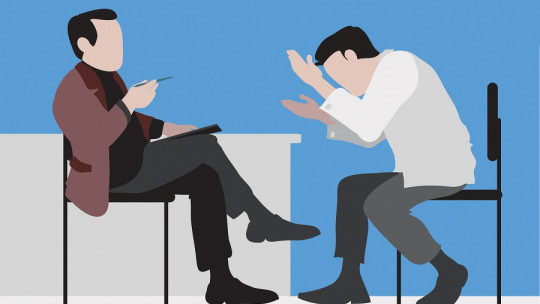
Psychology applied to the field of mental health never approaches people’s well-being by understanding it as something abstract, but always starts from a concrete context from which to intervene. In many cases, this context is that of a person who attends psychotherapy sessions as a patient, but this does not always happen.
For example, the work of emergency psychologists begins at a time when the person has not spent several days, weeks or even months thinking about the possibility of starting a therapy process to overcome a problem that has been affecting them for a long time; On the contrary, these types of specialists work just after crisis situations have occurred, disruptive experiences that have negatively affected one or more people through a specific experience: the unexpected death of a family member, a traffic accident, a natural disaster, etc.
However… What exactly are the functions of the emergency psychologist and how to dedicate yourself to this professional field? Let’s see it.
What does the work of emergency psychologists consist of?
This branch of psychology is designed for situations in which it is necessary to intervene quickly when faced with crisis situations that have the potential to harm mental health in a relatively short period due to its disruptive nature. For example:

Because of this, emergency psychology is closely linked to disorders associated with the phenomenon of trauma which can appear in the face of very stressful experiences that affect the way in which the person integrates what is happening into their memory, giving rise to consequences that can last months or even years if psychologists do not intervene.
Now, as we will see, emergency psychology is not limited to strictly being a type of trauma intervention just after the traumatic experience has occurred. Seen globally and in summary, the main functions of this type of professionals are the following.
1. Urgent mental health support in the event of isolated critical events
Support is offered to victims as quickly as possible both to prevent the trauma from becoming consolidated, affecting people’s mental health in the long term, and to prevent the behavior of shocked or stunned people from generating dangerous situations for themselves or others.
2. Urgent mental health support in the face of chronic events
Although emergency psychology is oriented towards crises, some of these appear in the context of a chronic problem such as psychotic disorders, addictions, homelessness, etc.
3. Attention and sensitivity to cultural differences
The intervention and that of other mobilized professionals are advised and guided to avoid generating problems due to the lack of information about the cultural background of the people being helped, something especially useful in contexts with high percentages of migrated people in refugee crises, and in intervention in countries at war.
4. Prevention and intervention in interveners
We also work taking into account the mental health of professionals who regularly work with crisis victims, taking into account that the work carried out in this type of situations has a great capacity to generate burnout, second-hand stress and other psychological disorders.
How to become an emergency psychologist?
Developing professionally in the field of emergency psychology involves first taking a university degree in Psychology and then specialize in this field through a Master’s degree.
If in the Degree or Bachelor’s degree the fundamentals of behavioral science are learned and the critical tools are acquired to distinguish between scientifically validated methodologies and those that are not, in the subsequent specialization is when the theoretical-practical training is truly received. necessary to work in crisis and emergency situations, as long as not only master classes are carried out, but also an internship period with assistance from experts in the field.
Notably Not in all cases it is necessary to work in the clinical or health psychology field to specialize and practice in emergency psychology: these functions can also be carried out by NGOs, security forces, social work, etc.








